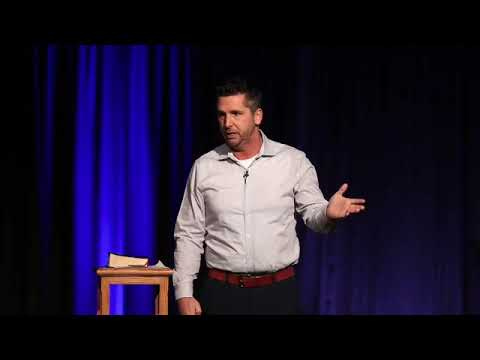This one hit me hard. I can speak on it, but man do I struggle to live it. Forgiveness, reconciliation, all of it. That was the heart of the question in this week’s edition of our annual You Asked For It series. I felt convicted researching it, I felt convicted writing it, I felt convicted preaching it.
I don’t know if you also struggle either with not wanting reconciliation or holding guilt over people you say you’ve forgiven, but if so, I hope the Spirit works on you like He has me this week. If you want the audio-only version of this clip, click here.
If you want to see the full sermon associated with this clip, you can find it here.
Transcript: What is forgiveness?
Wed, Nov 22, 2023 : Peter Heck
(Begin transcript)
I think there's a really, really important point that we need to make right off the bat with this question. And that is the distinction between two different words, I'm going to come back to that diagram. The two words that I'm talking about are forgiveness and reconciliation.
They're not the same thing. And sometimes we amalgamate them, that's a great word, we put them together, we blend them together, we put them together, and we pretend like they're the thing that to forgive somebody is to reconcile the relationship. And that is not the case. These are two entirely different things.
Forgiveness, we know what that is, or maybe we don't, but forgiveness is releasing someone from the guilt and the punishment for what they did. You're not going to hold them guilty any longer. That's what forgiveness is. But reconciliation is something entirely different. It's rebuilding and restoring and repairing the relationship that was damaged by whatever you have forgiven that person for.
In other words, you can never have reconciliation if you don't first have forgiveness. Forgiveness is an essential first step to reconciling a relationship. But you can forgive someone and I'm saying this to the question asker. So whoever you are, yes, you can forgive somebody, even if this reconciliation never happens, don't bear the weight that says I haven't forgiven them because our relationship is not the same. Sometimes sins that are committed against it will ruin a relationship. Even after forgiveness, it's never going to be restored.
So go back to that diagram that I started with. And let's apply that diagram to the original question. What do I mean by that? Let's use it in this specific situation. Okay, so this is you, and this is the other person and that chasm was opened up, and it was formed by someone who did something that really hurt you. It really offended you, it really wronged you, and you were left in pain because of the whole thing. You choose to release them from that punishment.
I've used that phrase twice. Let me zero in on that for a second whenever I do premarital counseling. Now I read this somewhere, and it is the best, it's changed my entire view of the word forgiveness. And I encourage the people that I do the premarital counseling with, don't use that word forgive freely, because that word forgive means something, okay? And we have to mean it when we say it, the best description that you have of what forgiveness is, if you truly forgive someone, if I truly forgive you, I am choosing to have the pain and the hurt every time it comes up. When someone hurts me, and I choose to forgive them. That doesn't mean I'm never whenever I see them, or whenever something happens, and I'm reminded of that situation, then I'm not going to experience the pain and the hurt.
What forgiveness means is when that happens, I deal with it, I carry it, I don't put it on them and force them to deal with that guilt and that weight. If we forgive as Jesus forgave, that's the model for us. He told us we don't bear that wait anymore. Now sometimes I'll still feel godly guilt for the things that I did, and the pain that I caused my savior, but it's not Jesus that's holding the guilt over my head. In fact, his Word tells me time and again, let it go. I've let it go. You're covered. You're good. You don't bear that weight anymore. I took it at Calvary.
So when the hurt arises, he carries it and it has to be the same with us. That has to be what we mean when we say “I forgive you.”
(End transcript)





